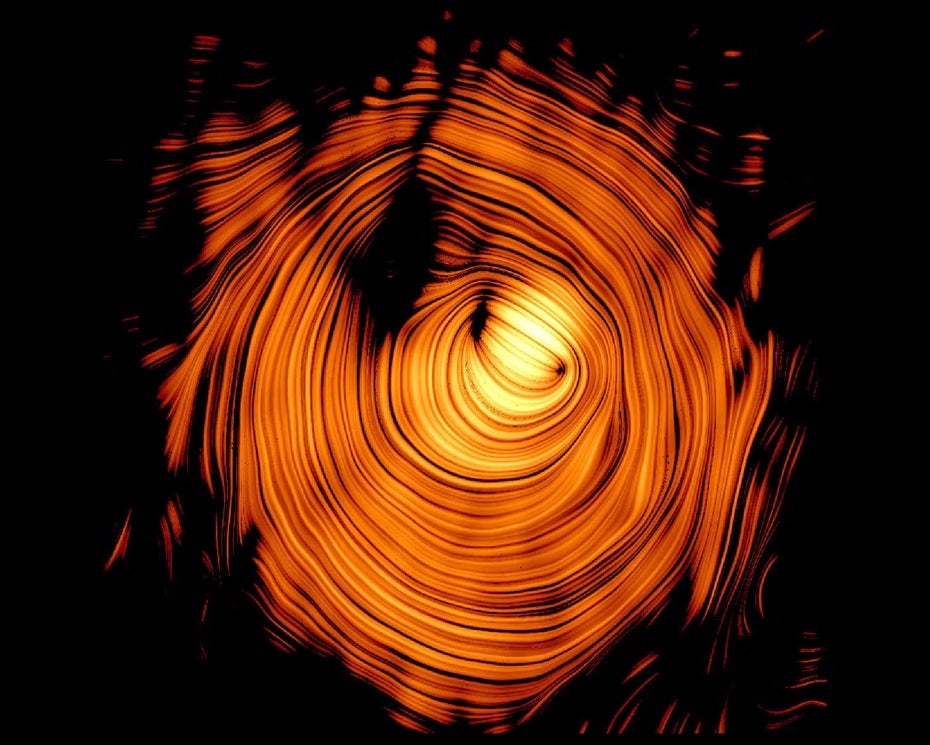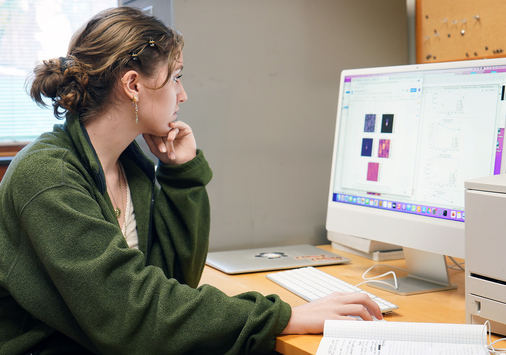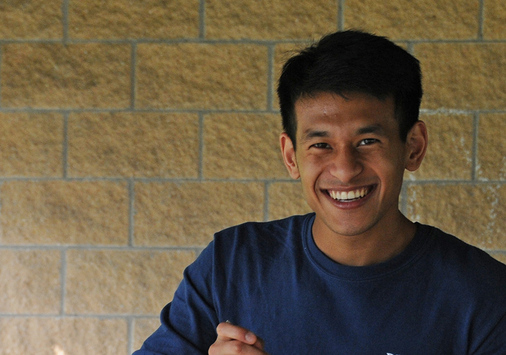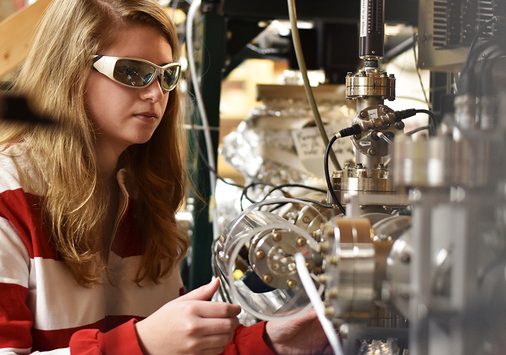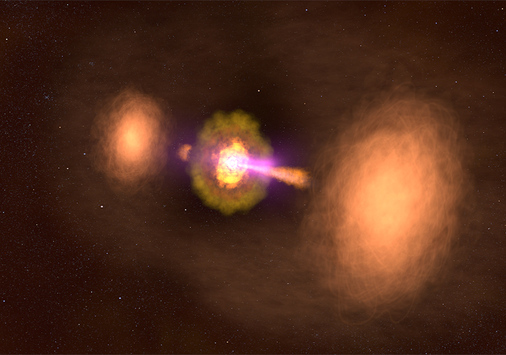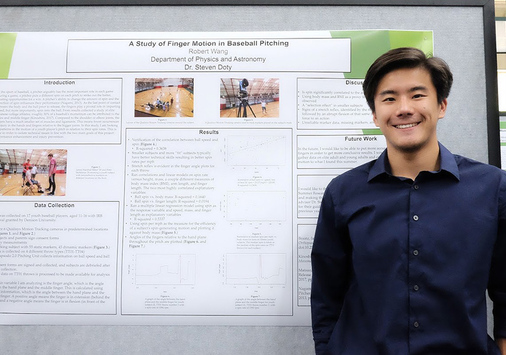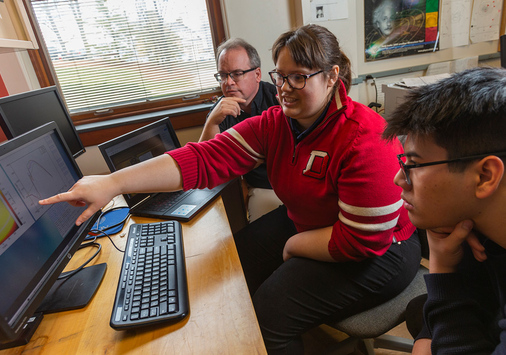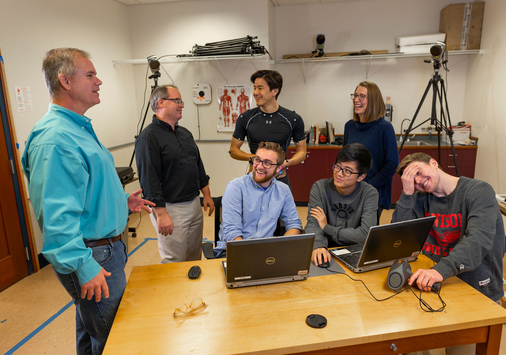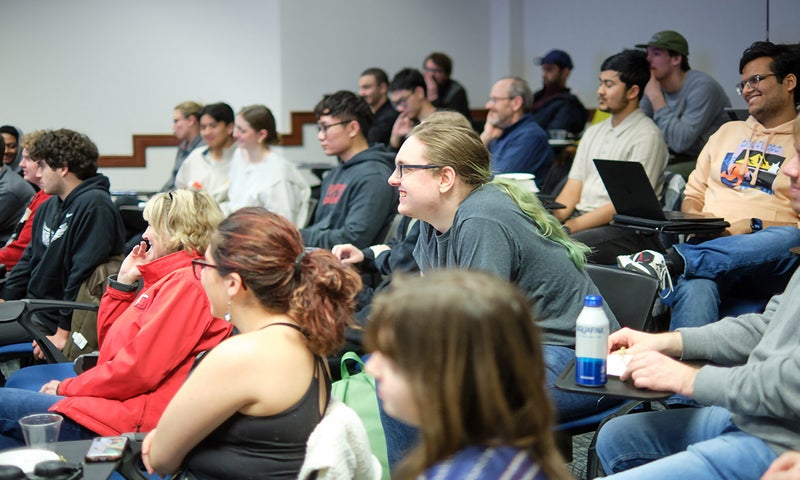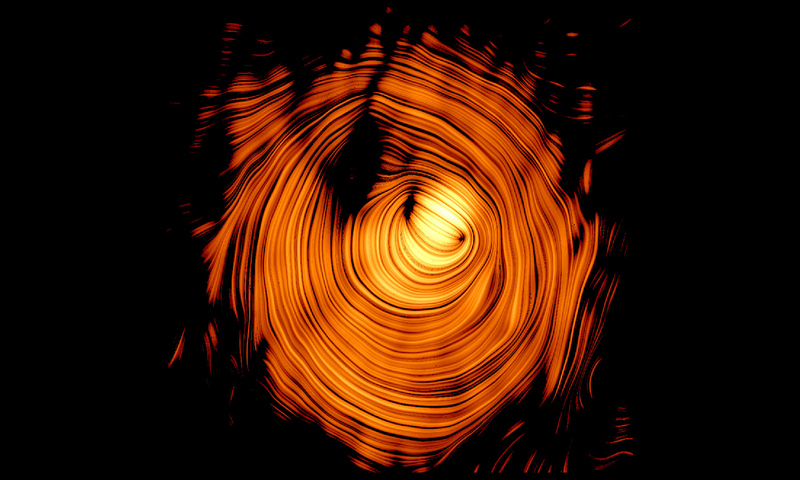Charlie Doret is the Associate Professor of Physics at Williams College. He believes that atoms and molecules are often simple enough to be quite tractable theoretically while offering a rich internal structure and a varied array of interactions that may be probed and controlled by the experimentalist. He is particularly interested in applying simple systems of trapped atomic to quantum simulation, in which a trapped-ion crystal is used to emulate the behavior of a more complicated quantum system.
During this talk, Doret and the Physics Seminar students grappled with deep questions about the fundamental nature of the universe. How did we come to be here? What surrounds us out there in the cosmos? Though these mysteries remain unsolved, over the years science has made some progress towards answers. The talk involved a discussion of the universe as we see it today – a tiny asymmetry in its early evolution. There was discussion of “dark matter,” which is so-called because it cannot be directly detected with telescopes.
Theories about dark matter are tricky propositions that elude even massive facilities like the Large Hadron Collider at CERN. Through his research, Doret elaborated on how small tabletop-scale experiments with atoms and molecules offer a path forward, searching for subtle effects which may hide in the structure of ordinary matter.
